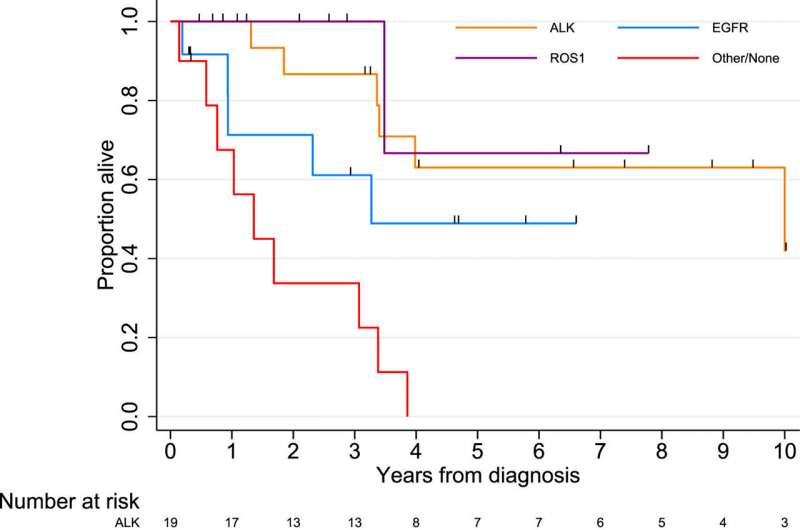New research explores options for motherhood in lung cancer patients


New research from the University of Colorado (CU) Cancer Center highlights the need for additional data collection for women hoping to have successful pregnancies while undergoing treatment for lung cancer. Specifically, they focus on the diagnosis of advanced oncogene-driven non-small cell lung cancer (NSCLC) that disproportionately affects women of reproductive age.
In a new paper published in Clincal Lung Cancer, physicians and researchers at the CU Cancer Center share their experience with pregnancies and other pathways to motherhood in women with oncogene-driven lung cancer. The Center, located on the University of Colorado Anschutz Medical Campus, is recognized as one of the most sought after cancer centers in the world for patients receiving targeted therapy for lung cancer, including those interested in pursuing motherhood.
“If a young woman is diagnosed with metastatic lung cancer, she is very likely to have an oncogene driver that can be turned off with targeted therapy. Such targeted therapies allow the possibility of many years of cancer control, often without any cancer symptoms and minimal side effects,” said lead author Emily Simons, MD, MPH, a senior fellow at the University of Colorado School of Medicine.
The authors say since targeted therapy is showing promise of extending the lives of women of reproductive age who receive this diagnosis, practical pathways to motherhood can now be considered for these patients. While such approaches were once considered taboo, the relatively promising future of oncology for some patients with lung cancer has brought this back up for debate.
“Women from our clinic and around the world have begun to ask how they can have the family they always wanted after their lung cancer diagnosis. Since this isn’t a straightforward or easy answer, we wanted to share our experience of providing pregnancy, surrogacy and adoption advice to patients in the lung cancer community. We hope this study will inspire those in the community to voluntarily provide more data that we can work with to arm women with as much updated information as possible so that they can make informed decisions,” Simons adds.
Co-author D. Ross Camidge MD, PHD, CU Cancer Center member and a professor in medical oncology at the CU School of Medicine, has seen the motherhood issue grow in importance.
Camidge says, “If the ideal goal of therapy in lung cancer is ‘perfect control of cancer and perfect quality of life,’ maybe we don’t always achieve that but for women who were contemplating motherhood before their diagnosis, the conversation has to be there. These people are living for decades, more than long enough to create a meaningful family through one means or another. It is not without controversy and not without many risky unknowns for each individual, but it shouldn’t be wrong to at least discuss motherhood now.”
Some women on targeted therapies have chosen to carry their own children, but Simons says more data needs to be collected to determine the overall safety of individual drugs in this setting. Simons hopes this study will allow them to start collecting more data regarding pregnancy and targeted therapy. At present, the safest routes are surrogacy or adoption for those wishing to become parents while receiving the treatment.
“Unfortunately, a diagnosis of advanced cancer can block some of these approaches for some organizations, but again a modern, up-to-date discussion of the facts is needed,” says Camidge.
Source: Read Full Article